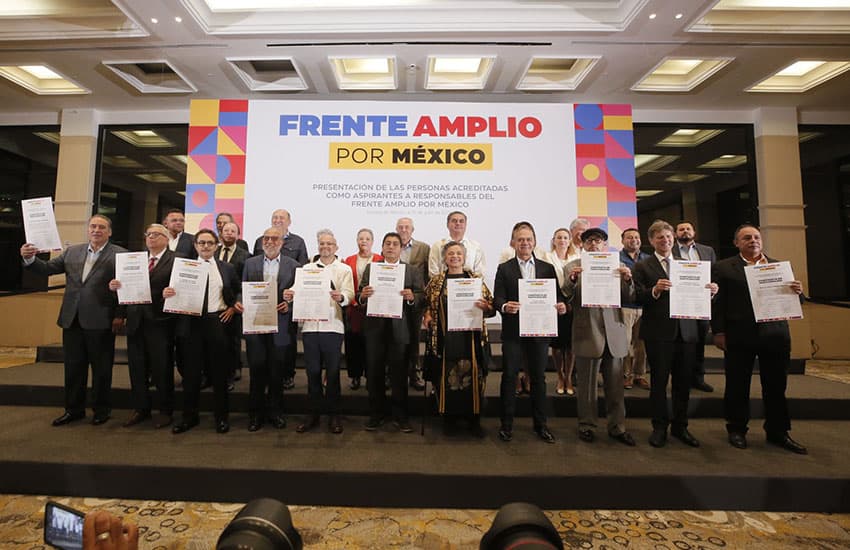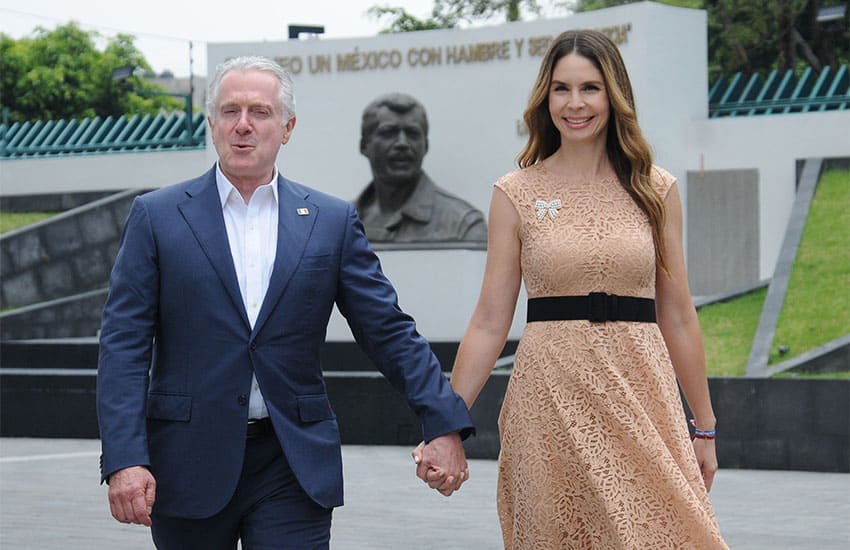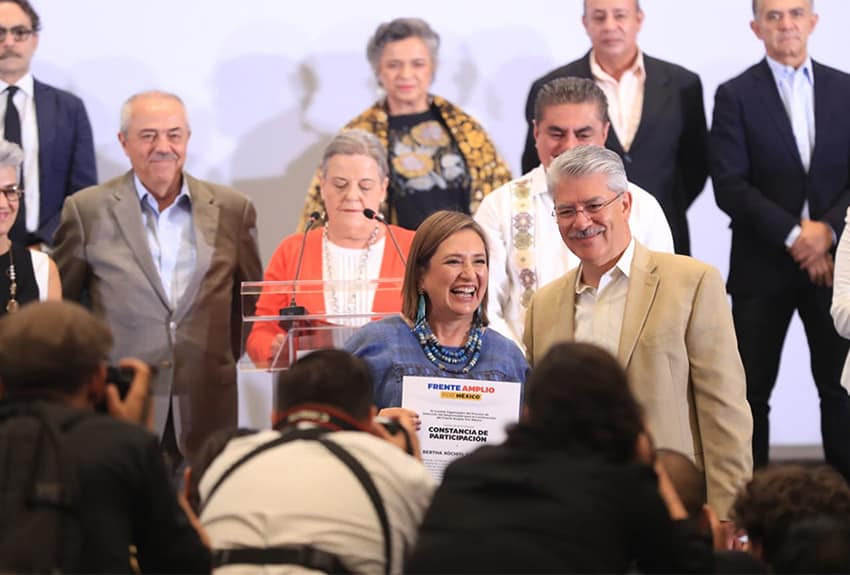PRI-PAN-PRD coalition registers 13 presidential hopefuls

Thirteen men and women are vying to become the 2024 presidential candidate for the coalition made up of Mexico’s main opposition parties.
A total of 33 people submitted documents expressing their interest in representing the Broad Front for Mexico (Frente Amplio por México) at the June 2, 2024, election, but the bloc — consisting of the National Action Party (PAN), the Institutional Revolutionary Party (PRI), the Democratic Revolution Party (PRD) and some 250 allied citizens’ groups — only accepted the registration of 13.
“After reviewing the documents and seeing which of them met the guidelines, we’ve accepted the registration of 13 of them,” Juan Manuel Herrero, a member of the Broad Front’s organizing committee, told a press conference.
The 13 registered aspirants are:
- Silvano Aureoles, governor of Michoacán between 2015 and 2021.
- Deputy Santiago Creel, interior minister in the 2000-2006 government led by Vicente Fox.
- Enrique de la Madrid, tourism minister in the 2012-18 government led by Enrique Peña Nieto and son of former president Miguel de la Madrid.
- José Jaime Enrique Félix, one of three “ordinary citizens” whose registration was accepted.
- Senator Xóchitl Gálvez Ruiz, the leading opposition aspirant, according to polls, and “the chosen one,” according to President López Obrador.
- Francisco Javier García Cabeza de Vaca, governor of Tamaulipas between 2016 and 2022 and the subject of a federal criminal investigation.
- Deputy Ignacio Loyola Vera, governor of Querétaro between 1997 and 2003.
- Senator Miguel Ángel Mancera, mayor of Mexico City between 2012 and 2018.
- Senator Beatriz Paredes, a former ambassador to Brazil who served as PRI national president between 2007 and 2011.
- Jorge Luis Preciado Rodríguez, a former federal deputy and senator from Colima.
- Deputy Gabriel Quadri de la Torre, candidate for the New Alliance party at the 2012 presidential election.
- Israel Rivas, spokesperson for an organization of parents of children with cancer and another of the “ordinary citizen” aspirants.
- Sergio Ibán Torres, president of the National Network of Police Associations and the third “ordinary citizen” contender.
In order to pass to the next stage of the Broad Front’s candidate selection process, the 13 aspirants must collect 150,000 signatures of support across at least 17 states by August 5.

The presidential hopefuls who reach the second stage will be required to participate in a “great forum” to “discuss and analyze” their vision for Mexico, according to a Broad Front for Mexico announcement in late June.
The aspirants will subsequently be included in “public opinion studies” — polling, in other words — that will determine the three contenders with the greatest support.
The three “finalists” will progress to the third stage, during which more forums will take place, additional polling will be conducted and a “direct” vote will be held on Sept. 3 ahead of an announcement of the victor the same day.
The Broad Front filed paperwork for its registration with the National Electoral Institute (INE) on Sunday, PRD Deputy Luis Espinosa Cházaro told a press conference on Monday.
Both the ruling Morena party and its allies, and the Broad Front, have begun their presidential candidate selection processes ahead of the timeframe established by the INE.
In an attempt to avoid violating the permitted timeframe for “pre-campaigns” and thus evade sanctions, Morena and the three-party opposition bloc are using alternative terms to describe the person who will become their presidential candidate.

The winner of Morena’s selection process — to be announced Sept. 6 — will initially be called “the coordinator of the defense of the transformation” of Mexico that President López Obrador asserts his government is carrying out.
The opposition alliance’s candidate will first be known as the “person responsible for the construction of the Broad Front for Mexico.”
The primary-style selection processes that Morena and the opposition bloc have decided to use represent a break from the past, in which parties appointed their presidential candidates without any public contest between aspirants.
The presidential candidate for the PRI — which was in office for 71 uninterrupted years before the PAN won the 2000 election — was traditionally chosen by the sitting president, a decision colloquially known as the dedazo (big finger).
Polls indicate that Morena is likely to win next year’s presidential election regardless of who the ruling party’s candidate is. Former Mexico City mayor Claudia Sheinbaum and ex-foreign minister Marcelo Ebrard are the top contenders to win Morena’s nomination.
The Citizens Movement party has also indicated that it will field a candidate at the election, and one or more independent hopefuls could appear on ballot papers as well.
With reports from El País, El Economista and Expansión
Source: Mexico News Daily

